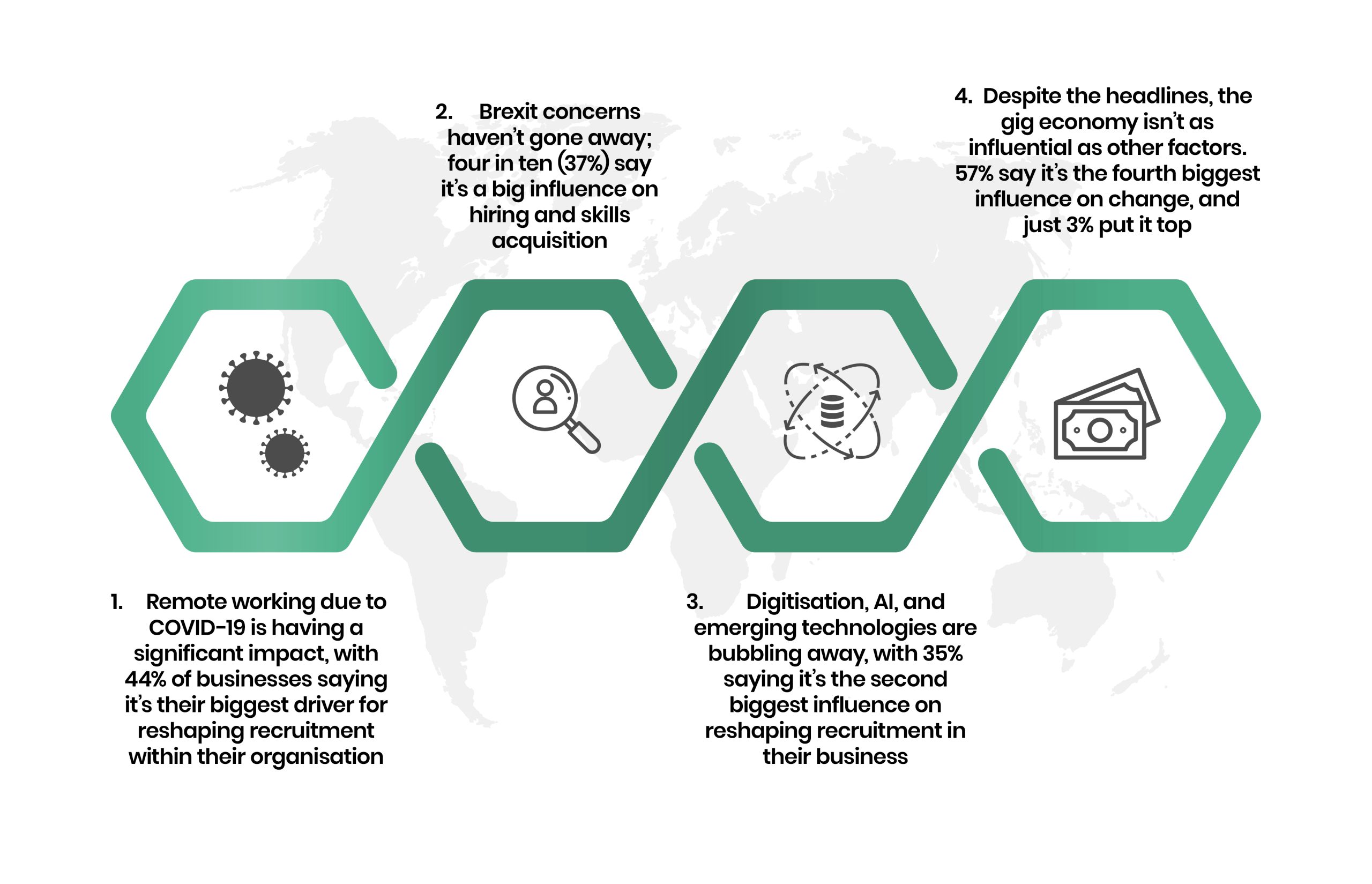We’re now at the beginning of a crucial period of change for HR and talent acquisition. To understand the pressures, pain points and priorities of an era marked by post-pandemic recovery, rapid digitisation, and workplace evolution, the recruitment process of most organisations would need to be relooked.
According to a 2021 Thomas International survey, over half of all hires are not working for businesses. It’s no surprise that recruitment fell back a bit in 2020. From the survey, 68% of respondents said they’d slowed down recruitment in 2020, while 8% stopped for a period completely. The problem is that as businesses look to stabilise, survive, and thrive due to the economic crunch caused by covid-19, they need to hire and retain quality employees. Hence, businesses that don’t take action to fix the recruitment challenge will face significant issues when they eventually accelerate hiring over the next couple of years.
According to Jayson Darby, the Head of Science for Thomas International, “When recruitment activity surges, the risk of getting it wrong increases, too. That is because, with more live roles and more candidates, it becomes harder to ensure a consistent experience for everyone involved. If recruitment processes aren’t grounded in objective data about how people behave and learn, the risk of biased and subjective decision-making is higher. That isn’t good for candidates or hiring managers. Companies today are likely to experience these challenges like never as we enter an accelerated period of recruitment in the post-pandemic recovery period”.
As the recruitment drive of most organisations is predicted to rise based on the Thomas 2021 survey, there exist concerns about remote hiring, difficulties in candidate differentiation, elimination of bias, and screening. Hence, concerns are further compounded by four key global factors:
These concerns are real and should be addressed by businesses if they are to reshape their recruitment process. What is clear also is that every organisation has objectives they are trying to achieve, and organisations hire people to achieve these objectives.
There is a need to leverage tools and techniques that have been tried, tested and proven to instil trust in the recruitment process. According to Thomas research, only 19% of respondents say that experience or CVs are a good indicator of performance against 34% for personality and 32% for emotional intelligence. Hence, Psychometric testing will play a greater role in hiring as the most trusted method for future performance for 46%. Humans will increasingly work alongside AI technology going forward, revealing a greater role for automation within recruitment and recruitment software is seen as a vital tool in various areas of the process, from candidate evaluation to predicting performance. Wise companies and HR professionals are leveraging psychometric assessments to infuse objectivity into their recruitment process. A very reliable tool that organisations can leverage is the Thomas’ Personality Profile Analysis (PPA). It is a personality test that enables employers to evaluate a candidates’ character traits in a more in-depth way to determine whether they will be a suitable fit for a role as well as how they prefer to communicate with others.
pcl. are partners with Thomas international to deploy the Thomas PPA tool. You can send an email today to people@phillipsconsulting.net, and we will reach out to you.
*This article contains excerpts from a report by our partner- Thomas International
Written by:

Joshua Ademuwagun
Head of Advisory, People Transformation

